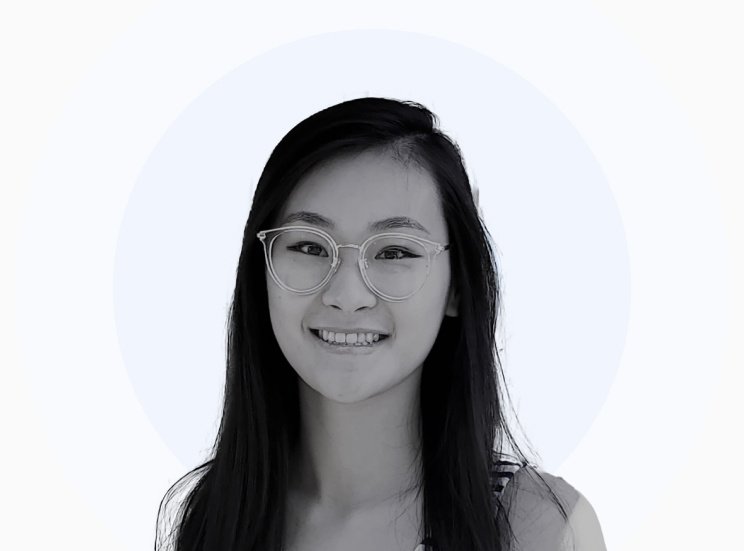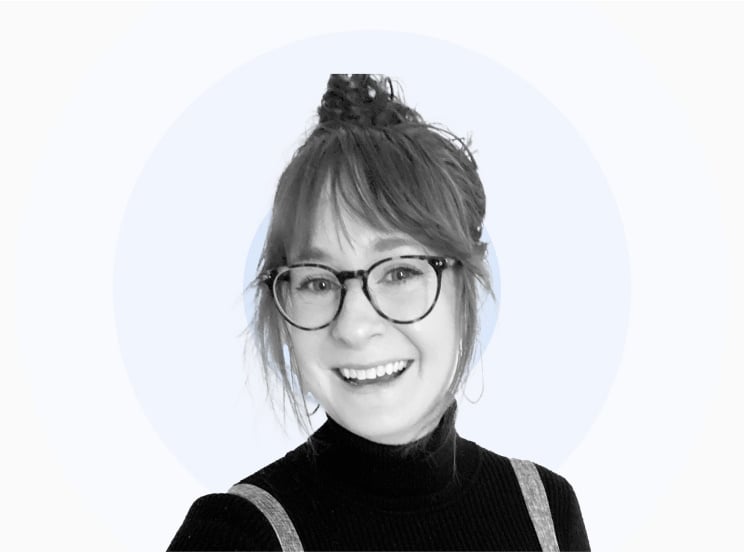4-step company branding exercise [template included]
Use this Template for company branding exercises with your team to establish your current Brand Identity and Brand Aspirations. Our branding exercise...

Stijn Hendrikse
A B2B SaaS company launches a major campaign with dozens of assets—ads, landing pages, videos, and social posts—generated almost entirely by AI. Within weeks, prospects are confused. The visuals clash. The brand looks bigger in one channel, smaller in another. Instead of building trust, the inconsistency erodes credibility.
This is the failure of traditional hiring for design and creative roles in the AI era. Companies once staffed visual teams with graphic designers and brand managers focused on output. But in 2025, volume is not the problem—coherence is. AI can generate infinite variations. What it cannot generate is syntropy: the discipline of creating visual clarity, brand integrity, and coherence across every touchpoint.
The Syntropy Sculptor role family is different. Sculptors are not just designers. They are visual architects who integrate AI into their workflows while curating, editing, and subtracting until only clarity remains. They know when less is more, and when to bend rules for lasting memorability.
For SaaS leaders, hiring Sculptors is transformative. With them, your brand looks 10x bigger, more consistent, and more credible—even when powered by AI. The market recognizes this: AI-proficient designers earn 21% more than peers, with leadership roles such as AI Creative Directors commanding $150K+.
This guide will show you how to recruit, evaluate, and build teams of Sculptors who can turn AI’s chaos into coherence and give your SaaS company a durable design advantage.
The Syntropy Sculptor family exists to create visual coherence in an environment of infinite variation. Within the Syntropy framework, Sculptors represent the visual and aesthetic dimension—the interpreters who make brands instantly recognizable across cluttered markets.
Graphic Designer
Brand Designer
UX/UI Designer
Web Designer
Video Producer / Editor
Motion Designer
Art Director
Presentation Designer
Packaging Designer
Event Designer
Photographer / Videographer
3D Designer
Customer Experience Designer
Swag/Merchandise Manager
AI Visual Designer – Produces assets with AI-driven design tools.
Data-Driven Creative Director – Shapes campaigns using AI and analytics.
AI-Powered Visual Content Designer – Generates visuals with AI assistance.
Creative Technologist – Blends artistry, coding, and AI-driven interactivity.
AI Brand Experience Designer – Crafts AI-enabled, multimodal brand experiences (AR/VR, personalization).
Entropy in design looks like fragmented campaigns, off-brand AI outputs, or an inconsistent user experience. Sculptors prevent this by:
Maintaining brand systems that govern all AI-generated assets.
Using AI for exploration but curating outputs to preserve coherence.
Subtracting complexity to ensure clarity across formats.
Applying judgment to decide which visual signals endure.
A living design system that scales across AI workflows.
Campaign visuals consistent across 10+ channels.
Investor decks and websites that make startups look enterprise-ready.
Motion graphics or product demos that align perfectly with brand identity.
Traditional designers: $68K–$130K depending on seniority.
Senior creative leaders: $140K–$200K+.
AI-proficient creative roles: 21–43% premiums, with AI Creative Directors commanding $150K–$250K base and >$300K total compensation.
We are seeking a Syntropy Sculptor to lead design coherence across our brand and campaigns. This role goes beyond creating visuals—it is about making our brand unmistakable. The Sculptor uses AI creatively but ensures outputs reinforce clarity and trust.
Visual Coherence: Maintain brand systems and design libraries across all channels.
AI Orchestration: Use generative AI tools (e.g., Midjourney, Firefly, Canva Magic Suite) for ideation, while curating outputs for brand consistency.
Creative Subtraction: Simplify visuals to highlight what matters most, subtracting clutter and entropy.
Cross-Functional Collaboration: Partner with Scribes (narratives), Engineers (systems), and Navigators (strategy) to align storytelling, design, and execution.
Brand Integrity: Ensure every asset answers “Who’s it for? What’s it for?” and strengthens signal.
Technical competencies
Mastery of design tools (Figma, Adobe Creative Suite, After Effects).
Proficiency with AI image/video generation tools.
Workflow automation and version control in AI-driven design.
Human-only capabilities
Editorial judgment in visual curation.
Pattern recognition across channels and campaigns.
Ability to apply creative tension and asymmetry for memorability.
Judgment in knowing when to subtract, not add.
Industry experience
3–7+ years in B2B SaaS design, brand, or creative leadership.
Proven record of producing assets that impacted pipeline or positioning.
Experience with AI design workflows or custom brand AI models.
Demonstrated portfolio of simplifying complex ideas visually.
Certifications in design systems, UX/UI, or AI design courses.
Evidence of cross-functional leadership (marketing, product, sales).
30 days: Understand brand system, ship first AI-assisted but human-curated campaign visuals.
60 days: Create a scalable prompt library and update design system to handle AI outputs.
90 days: Deliver multi-channel coherence in a campaign, reducing visual entropy across touchpoints.
Base salary: $90K–$180K depending on experience.
Senior leadership roles: $150K–$250K+.
Variable pay: 15–30% tied to syntropy metrics (brand consistency, signal clarity, campaign coherence).
Equity: 0.1–2% depending on stage.
Benefits: Health, retirement, creative development allowance, access to AI design training.
Portfolio demonstrates process clarity (not just aesthetics).
Evidence of AI tool use without over-dependence.
Examples of reducing complexity into clarity.
Cross-functional projects (working with product, sales, or narrative).
Curiosity about emerging design tech.
Documented continuous learning (courses, experiments).
Stage 1: Initial Screen (30 minutes)
“Describe a project where AI failed you. How did you pivot?”
“How do you ensure brand consistency when using generative AI?”
“Tell me about a time you subtracted or simplified design to make it stronger.”
Stage 2: Technical Assessment (60–90 minutes)
AI Workflow Demo: Candidate generates and curates visuals from AI tools.
Brand Coherence Challenge: Given assets from multiple sources, candidate organizes them into a coherent system.
7-Minute Signal Test (Design Edition): Generate 20 visual approaches in 7 minutes for a SaaS campaign.
Stage 3: Cultural Fit & Strategic Thinking (45–60 minutes)
“How do you decide when to bend rules versus maintain strict brand consistency?”
“Describe your approach to staying ahead in AI creative tools while maintaining human judgment.”
“How do you measure whether a design creates syntropy versus entropy?”
Stage 4: Executive Assessment (30–45 minutes)
Strategic scenario: “You inherit a brand system after a merger. How do you integrate and maintain coherence in 90 days?”
Growth trajectory and compensation conversation.
Collaboration with Scribes, Engineers, and Navigators.
Portfolio focused on aesthetics with no explanation of process.
Over-reliance on AI outputs, no curation.
Inability to explain “Who’s it for? What’s it for?” in design terms.
Resistance to emerging AI tools.
Cluttered or overproduced design style.
Evidence of creating coherence across diverse outputs.
Strong articulation of design philosophy (“less is more”).
Demonstrated ability to scale design systems with AI.
Experience leading AI-enhanced creative workflows.
Curiosity and adaptability in experimenting with tools.
Search in design-forward SaaS companies (Figma, Canva, HubSpot).
Look in AI-native creative communities (Midjourney Discord, SuperSide, Behance AI).
Target passive candidates via headhunting—89% of successful AI-design hires come this way.
Emphasize roles as signal creators: not just making things pretty, but making brands unforgettable. Highlight progression toward AI Creative Director and equity opportunities.
Base Pay: $90K+, with senior roles up to $250K+.
Variable: 15–30% tied to brand coherence and signal persistence.
Equity: 0.1–2% for startup-stage roles.
Remote Adjustments: Remote roles average 85–90% of metro salaries.
First 30 days: Learn brand system, ship curated visuals.
Days 31–60: Build prompt libraries and AI workflows.
Days 61–90: Deliver multi-channel campaign coherence.
Ongoing: Lead quarterly signal audits of brand clarity.
Startup (5–50 employees): 1 Sculptor generalist.
Growth (50–200): 2–3 Sculptors covering brand, multimedia, and motion.
Scale (200+): Creative Ops function, led by AI Creative Director.
Sculptors integrate with Scribes (narrative), Engineers (system), and Navigators (strategy) for complete syntropy creation.
Visual entropy reduction (fewer off-brand assets).
Speed of AI-to-curated asset pipeline.
Engagement uplift tied to coherent design.
Signal persistence: brand recognition across channels over time.
The shift from traditional designers to Syntropy Sculptors is not cosmetic. It is existential. In an age where AI can generate thousands of variations, Sculptors make sure your brand doesn’t drown in entropy but shines with coherence.
Hiring Sculptors isn’t about filling a design role. It’s about building a visual coherence function that makes your SaaS company look 10x more credible, trustworthy, and differentiated. AI-enhanced creative professionals already command 21–43% premiums, and companies that embed Sculptors see measurable gains in campaign efficiency, brand recognition, and ROI.
Your next step is immediate: within 72 hours, audit your last 10 campaign assets for coherence. Where are you amplifying signal, and where are you leaking entropy? That audit will show you how urgently you need a Sculptor.
The Syntropy framework makes clear: Navigators guide strategy, Scribes craft narratives, Engineers build systems—and Sculptors make it all visible. Together, they form the team that turns AI from a noise machine into a signal amplifier.
Now is the time to hire Sculptors. Your brand’s future clarity depends on it.
Use this Template for company branding exercises with your team to establish your current Brand Identity and Brand Aspirations. Our branding exercise...

Learn how your brand colors need to spark an emotional response and communicate your brand’s voice.

A B2B SaaS brand is so much more than just a logo, it’s an identity that breathes character into your business. Learn the key strategies for how to...
